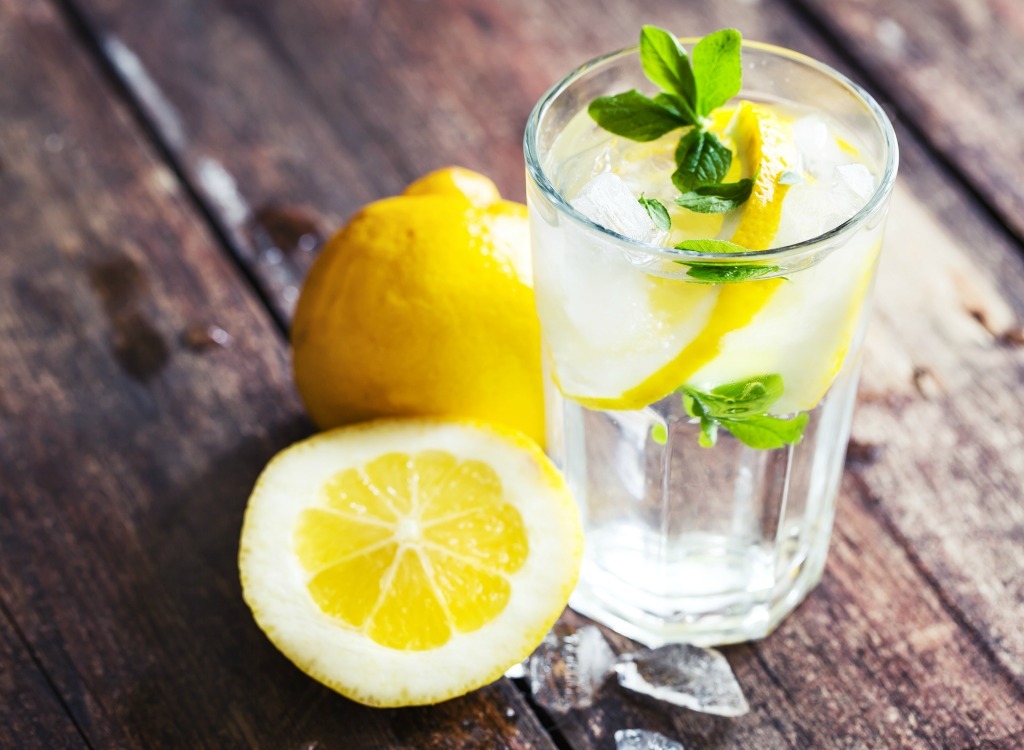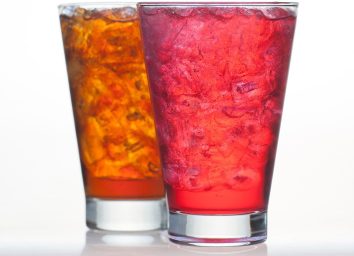Is Lemon Water Healthy?

Ask your healthy friend about her morning routine, and you're bound to hear something about lemon water. The cleansing beverage is said to help digestion, boost immunity, and clear skin. Some even say lemon water acts as a buffer in the body, balancing pH levels that could lead to disease if left out of whack. But are those claims founded? We tapped a nutritionist to give us the real deal on what lemon water can (and can't) do for your health to get to the bottom of if lemon water is healthy or not.
What makes lemon water healthy?
Just like good old H2O, lemon water is hydrating and free from the added sugars and unfamiliar ingredients you might find in other pre-flavored beverages. Hydration is critical for countless body functions.
"The body is about 50-60% water, so it needs water to function at its best," says Jennifer Maeng, RD, co-founder of the private practice Chelsea Nutrition in New York City. "When we become dehydrated, all of our organs have to work much harder in order to do their jobs."
Adequate fluid intake also helps remove toxins from our bodies via the urine and feces, and may even be beneficial for those prone to kidney stones, says Maeng. "The citrate in lemon has been shown to prevent the formation of the mineral crystals that can develop into kidney stones."
Though plenty of people swear by drinking lemon water first-thing in the morning, there's no additional benefit to sipping the beverage as soon as your alarm goes off. That said, hydrating early is important (more on this below), and the citric flavonoids in lemon aid digestion and reduce fatigue, so drinking lemon water in the morning could help you start your day strong.
So lemon water is healthier than plain water?
Not necessarily. "Most benefits people experience from drinking lemon water are probably from increasing their water intake," says Maeng. "Many of us don't drink enough water to stay hydrated, so reminding ourselves to drink 12-16 ounces of water before the start of a busy day can help keep us better hydrated than normal." Whether that water contains lemon juice or not won't make or break your health.
People say lemon water has an alkalizing effect on the body. Is this true?
Again, not quite. While it's true that a small amount of lemon juice can become alkaline when combined with water, it won't make much of a difference when it comes to your health. "Simply put, there is no water or food that can substantially change the pH of your blood," says Maeng. The body has mechanisms in place to keep its pH levels within a narrow range (from about 7.35-7.45). Without those mechanisms, we'd be dead—not reaching for a citrus-infused drink.
Before you discount eating alkaline foods, know this: "There are other great health benefits associated with following a plant-based diet, which is highly alkaline," says Maeng. Improved bone health, decreased risk of hypertension and stroke, and better memory are just a few of the advantages of eating a diet high in fruits and veggies.
What about cold vs. warm lemon water? Is one healthier than the other?
"Warm water has a vasodilating effect, meaning it can stimulate blood flow and aid in digestion," says Maeng. "It also helps to emulsify the fats we consume in meals so they are digested more easily." Chilled water has been shown to keep core body temperature lower, which may help prevent fatigue during vigorous exercise sessions. The bottom line: both options deliver benefits. Sip on whichever one you prefer. Bottoms up!








